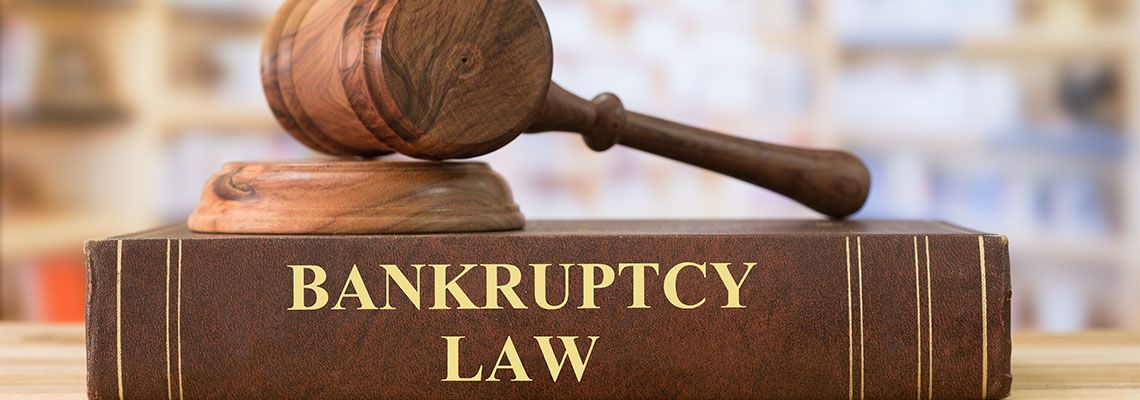
Repairing Your Credit After Filing for Bankruptcy
According to the American Bankruptcy Institute (ABI), bankruptcy filings in January of 2023 were up by 19 percent nationwide over 2022. Chapter 7 filings were up from 15,177 to 16,606, and Chapter 13 filings were up from 10,741 to 14,105.
The primary difference between the two is that Chapter 7 is known as the liquidation option and Chapter 13 is the “wage-earner’s plan” because it involves paying back part of the debt. Another major difference is the time it takes before you can be discharged from your obligations. A Chapter 7 may take only a few months, while a Chapter 13 will take three years minimum or up to five years.
Of course, the other major difference is the fallout on your credit score and credit availability after filing for bankruptcy. The filings will remain on your credit report for years, but that doesn’t mean you can’t rebuild your credit and move forward in life much sooner than that.
If you’re considering bankruptcy or have already completed the process in or around San Mateo, California, contact the bankruptcy attorneys at EH Law Group. We not only will help you undertake the bankruptcy process to clear your debt obligations, but we also will explain how to rebuild your credit once the process has begun with the filing appearing on your credit report.
We also proudly serve clients throughout the surrounding area, including San Francisco – where we also have an office – as well as Santa Clara County, Oakland, Daly City, and South San Francisco.
How Long Does a Bankruptcy Stay on Your Credit Report?
Once you file, your bankruptcy petition will show up on your credit report, so the starting date for your credit notation on the major credit bureaus – TransUnion, Equifax, and Experience – is the filing date, not the discharge date. This is important because a Chapter 13 discharge can take three to five years, while Chapter 7 takes only months, generally speaking.
A Chapter 7 filing is considered the more serious of the two, as it involves the potential liquidation of personal assets to satisfy creditors, though California does offer generous exemptions, especially when it comes to home equity.
In any case, a Chapter 13 filing will stay on your record for seven years, and a Chapter 7 for 10 years, though that doesn’t mean you can’t begin to restore your credit almost immediately after discharge and sometimes before. In Chapter 13, if you want to take on new credit – for instance, trade in your old car and get a new one – you may have to get bankruptcy court approval if you have not yet been discharged.
Does That Mean I Can’t Do Anything Requiring Credit for 7 to 10 Years?
Not really. Practically speaking, many government-backed mortgage/home-buying programs will allow you to purchase a home a year or two after filing Chapter 13. A Chapter 7 filing can take longer, maybe two to four years.
You can often purchase a car within months of filing either Chapter 7 or Chapter 13. You may even get offers in the mail, but you will need to check the terms being offered. The interest rates will likely be higher because you’ll be viewed as a greater credit risk.
What Steps Can I Take to Rebuild My Credit?
Even though the bankruptcy will stay on your credit report for 7 or 10 years, your score should actually start improving long before that, unless you fall into the same bad habits that forced you into bankruptcy before, although most filers simply fall victim to changing economic times (lose their job, run up huge unexpected medical bills, or otherwise are forced to take on credit they wouldn’t have otherwise). Here are some practical steps to take:
Join a credit union and take out a credit-builder loan: If you can do this – maybe you already belong to a credit union – the institution will loan you a small amount, usually $1,000 or less, and place it in a special account that you can’t tap until you pay off the loan. As you make monthly payments, that will help improve your credit score, but make sure your payments are made on time in the full monthly amount.
Get a secured credit card: Credit unions and some banks offer secured credit cards, meaning you give them a sum of money and they give you a credit card in that amount. They keep the money, of course, but if you use your card wisely and make timely, full payments each month, it will help with your credit score.
Consider credit card offers sent to you: Just like auto dealers and auto loan companies will probably send you offers in the mail, so too will credit card companies. In both instances, you need to check the terms regarding interest rates, potential monthly fees for the credit card, down payment requirements, and so on. The offers are likely to have risk protections built in.
Again, however, if you take out a credit card or purchase a vehicle, you need to make sure your payments are made in full on a timely basis. Delinquency and skipped or partial payments can send your credit score plunging again.
Diligent and Detailed Legal Guidance
Wherever you are in the Greater San Francisco Bay Area, contact the bankruptcy attorneys at EH Law Group. Bankruptcy can sound like a scary proposition, but it really does offer you a fresh financial start in life.
If your debt is overwhelming you, reach out immediately. We will review your situation with you and help you navigate the bankruptcy system to put your debts behind you and move forward.
If you’ve already been discharged and want help in repairing your credit, we will be happy to answer your questions and provide concrete guidance to restore your credit and enjoy life to the fullest. Whatever the circumstances, you can rely on our knowledge, experience, and resources.
